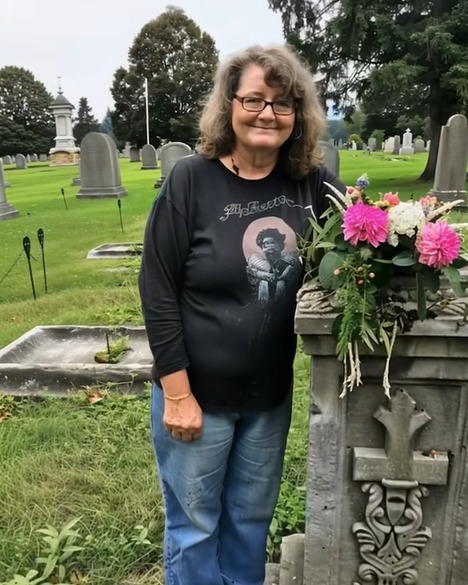For twenty-three years, Nancy observed a sacred tradition born from profound loss. Every year on the anniversary of her son Henry’s passing, she would bake his favorite apple-cinnamon pie. The ritual was a tactile connection to her memories, filling her kitchen with the same scent that once drew her young son rushing in, his face alight with anticipation. Carrying the warm pie to his graveside was her way of maintaining a thread of connection, a mother’s enduring act of love for a child taken too soon. It was a private language of grief and remembrance that time had not diminished.
One year, this deeply personal ritual was unexpectedly interrupted. When Nancy returned to the cemetery the day after her visit to collect the pie dish, she found it empty. In its place was a small, handwritten note that held only two words: “Thank you.” A wave of confusion and hurt washed over her. The act felt like a violation of a sacred space, leaving her to wonder if it was simple carelessness or something more callous. Determined to safeguard her son’s memory, she decided to return the next day with a new pie, resolved to wait and discover who had taken the offering meant for Henry.
What she witnessed transformed her understanding of the situation. A young boy, no older than nine, approached the grave with a quiet reverence. He did not act like a thief but moved with a gentle purpose, placing another note of thanks before carefully picking up the pie. When Nancy softly spoke to him, the boy, named Jimmy, froze in fear. He explained with a trembling voice that he had not meant to cause any harm. He was simply hungry, and finding the pie had felt like a miraculous gift. In that instant, Nancy’s perspective shifted entirely from one of trespass to one of profound compassion.
Instead of anger, Nancy felt a surge of maternal care. She invited Jimmy to her home, where she served him a fresh, warm slice of pie. As she watched the boy’s face transform with joy, a long-dormant sense of peace began to settle in her own heart. She realized that her act of remembering Henry could evolve into an act of giving, that the love she carried for her son did not have to remain anchored solely in the past. In helping a hungry child, she was honoring Henry’s memory in a new and powerful way, allowing her grief to find a purpose in the present. The love she thought was confined to a headstone was, in fact, still very much alive, finding its way to a new heart in need of comfort.


